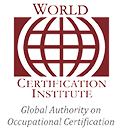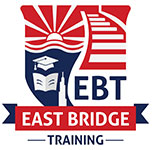What are the main differences between teaching in Europe and Asia?
There is a notable difference when it comes to teaching English in European nations compared to Asian nations. English teaching professionals across the globe share numerouslikenesses in terms of way of living, classrooms, relishing local delicacies, exploring the region, getting involved in sports and playing a significant role in the local community as a teacher. Teachers may share their experience based around the mentioned parameters (or it may differ as well) but, teachers working in Asia and European nations can expect to have differences in their work and social life, the institutions they will work for or even on a personal level. Let’s look at some ofthe major differences.
Finances
Among many, one of the major differences between teaching English in Europe and Asia is the expected salaries and savings that will consequentially follow during your tenure there.
In Asia, teachers can expect to save around 30% -50% from their salaryafter all the monthly expenses (common in places like Japan, China, South Korea, Vietnam, Taiwan, Thailand etc.). Though it mainly depends on where you teach, but if you are willing to explore East Asia as an English teaching professional, you can expect to save from 300 USD up to 1000 USD/month even after all your expenses. As a teacher, you will be able to save money to travel during holidays, extend travel after your contract ends, make your student loan payments, or choose to take it back with you for personal use. The salaries are on the higher end compared to a low cost of living that actually allows you to indulge in a lot of activities and enjoy your time when not teaching.
Compared to Asia, salaries in Europe are quite high thus providing a quality and comfortable living for teachers, the only difference being that you won’t be able to save enough money unlike teachers in Asia. So, if you want to save some money, you will either have to cut down on leisurely activities by indulging in and pampering yourself by dining out, trying local cuisine, living in a nice apartment, seldom travelling and soaking in the amazing culture and lifestyle of experiencing life in Europe.
Work Hours & Schedules
The expectation of higher salaries in Asia for English teachers comes with working more hours and to exclusively work for one school or language center. While your ‘contract hour/s’ may not exceed 25 hours/week, but it is quite common for teachers to have office hours in the school preparing for class, creating curriculum/lesson plansor just being available for parents and students. In many Asian countries, you can also expect a 40-hour work week.
Whereas, to teach English in Europe, you can expect the same 25 hours of teaching time/week, possibly split between two different schools and language centres. It is quite common for a teacher to work 10-12 hours at one school, and remaining 10-12 at anothercenter to continue a full-time schedule. You can also teach as a private tutor as it is also a potentway for making extra money in the European markets. It is either to enhance a schedule or, perhaps, to create a full-time schedule after connections are made.
Housing
In Asia, South Korea and China are the most in demand markets as they are known to pay for teacher’s housing. This is done by either providing free housing or adding housing allowance as a bonus to your salary. The apartments provided are often very pleasant and accommodating. You are most likely to end up with roommates which is agood way to make friends. Apart from South Korea and China, other countries in Asia are known to be very helpful with finding accommodation for teachers and occasionally even have an apartment all set up for you for a cost, making the process easier.
Coming to the European scenarios, free housing is not much of a thing here and is less common to find.Teachers are expected to arrange for their accommodation upon arrival. Staying in an Air BnB or hostel is recommended until you secure a job/accommodation and know the locality up and close.
Hiring Seasons & Securing a Job
There are basically two ways to secure a teaching English job abroad - in advance (over Skype/Email) and in-person (being in the city you would like to teach in and look for a job). Asia and Europe offer ample job opportunities either way.Forthe most part, Asia prefers hiring teachers in advance over Skype, will assist you with the visa process before arrival, and hire year-round. This is factual for countries such as South Korea, China, Japan, Taiwan, Hong Kong and Singapore. Countries like Thailand, Cambodia, and Vietnam are often known to hire in advance, but more likely to hire teachers on the ground in-person.
In comparison, Europe presents a hiring system that is the opposite of what Asia does with its hiring practice. Europe requires you to be therefor in-person interviews during their peak hiring season in September or January. While some countries (like Poland and Czech Republic) are known to hire in advance. So, when you choose Europe for teaching English, you need to be there, and be prepared to find your job, in-person.
Types of Students
Another stark comparison between teaching in Europe and Asia is the type of learners you will be teaching. Both continents are capable of providing opportunities with both young and adult learners, but it is more common to teach young learners in Asia, while in Europe there is a fair chance of teaching English to adult learners in language schools and by giving private lessons. Obviously, that doesn’t mean that you can’t teach children in Europe, it is just that there is a high chance of teaching adults in the Europe.






















